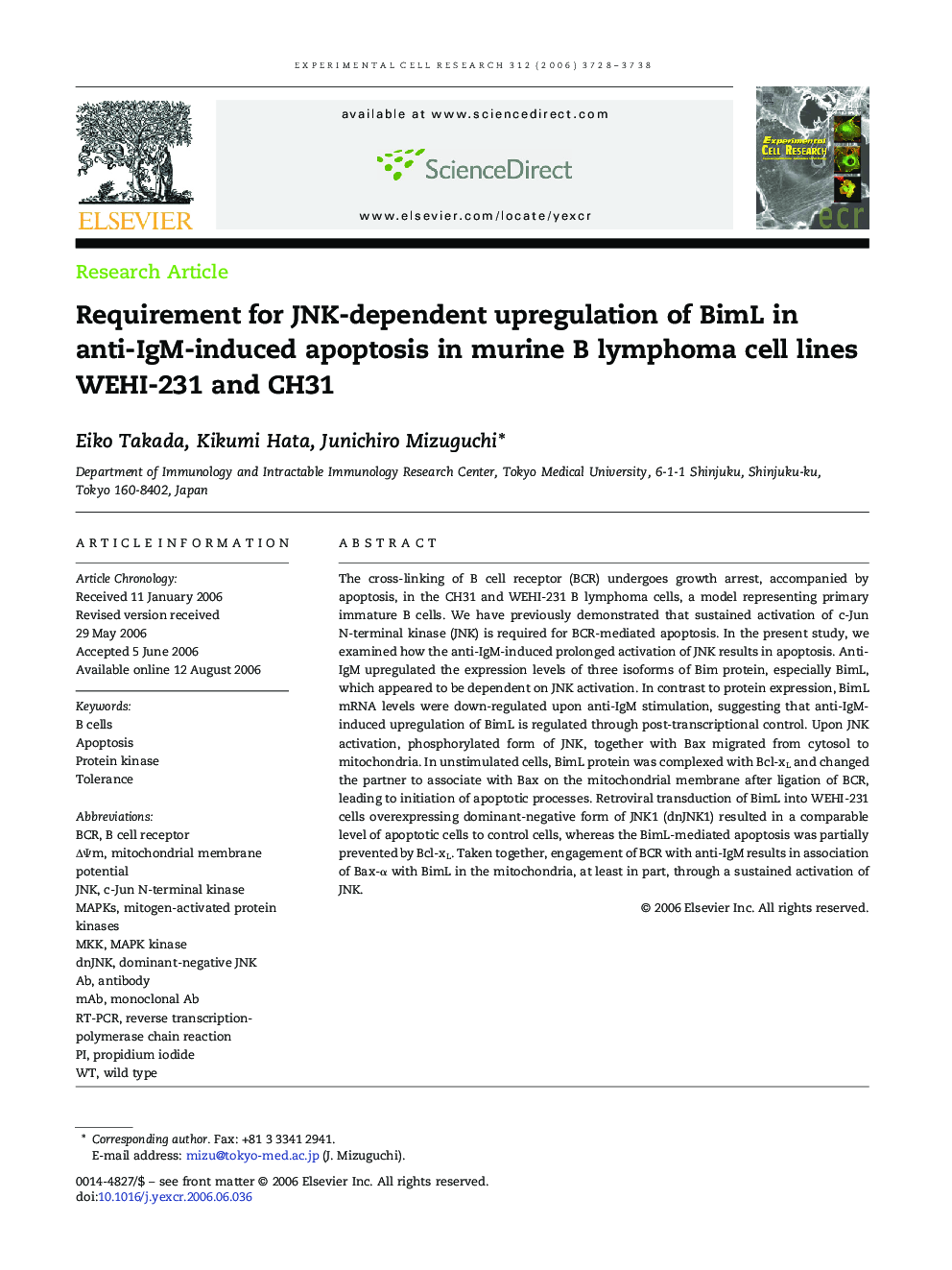| Article ID | Journal | Published Year | Pages | File Type |
|---|---|---|---|---|
| 2132765 | Experimental Cell Research | 2006 | 11 Pages |
The cross-linking of B cell receptor (BCR) undergoes growth arrest, accompanied by apoptosis, in the CH31 and WEHI-231 B lymphoma cells, a model representing primary immature B cells. We have previously demonstrated that sustained activation of c-Jun N-terminal kinase (JNK) is required for BCR-mediated apoptosis. In the present study, we examined how the anti-IgM-induced prolonged activation of JNK results in apoptosis. Anti-IgM upregulated the expression levels of three isoforms of Bim protein, especially BimL, which appeared to be dependent on JNK activation. In contrast to protein expression, BimL mRNA levels were down-regulated upon anti-IgM stimulation, suggesting that anti-IgM-induced upregulation of BimL is regulated through post-transcriptional control. Upon JNK activation, phosphorylated form of JNK, together with Bax migrated from cytosol to mitochondria. In unstimulated cells, BimL protein was complexed with Bcl-xL and changed the partner to associate with Bax on the mitochondrial membrane after ligation of BCR, leading to initiation of apoptotic processes. Retroviral transduction of BimL into WEHI-231 cells overexpressing dominant-negative form of JNK1 (dnJNK1) resulted in a comparable level of apoptotic cells to control cells, whereas the BimL-mediated apoptosis was partially prevented by Bcl-xL. Taken together, engagement of BCR with anti-IgM results in association of Bax-α with BimL in the mitochondria, at least in part, through a sustained activation of JNK.
